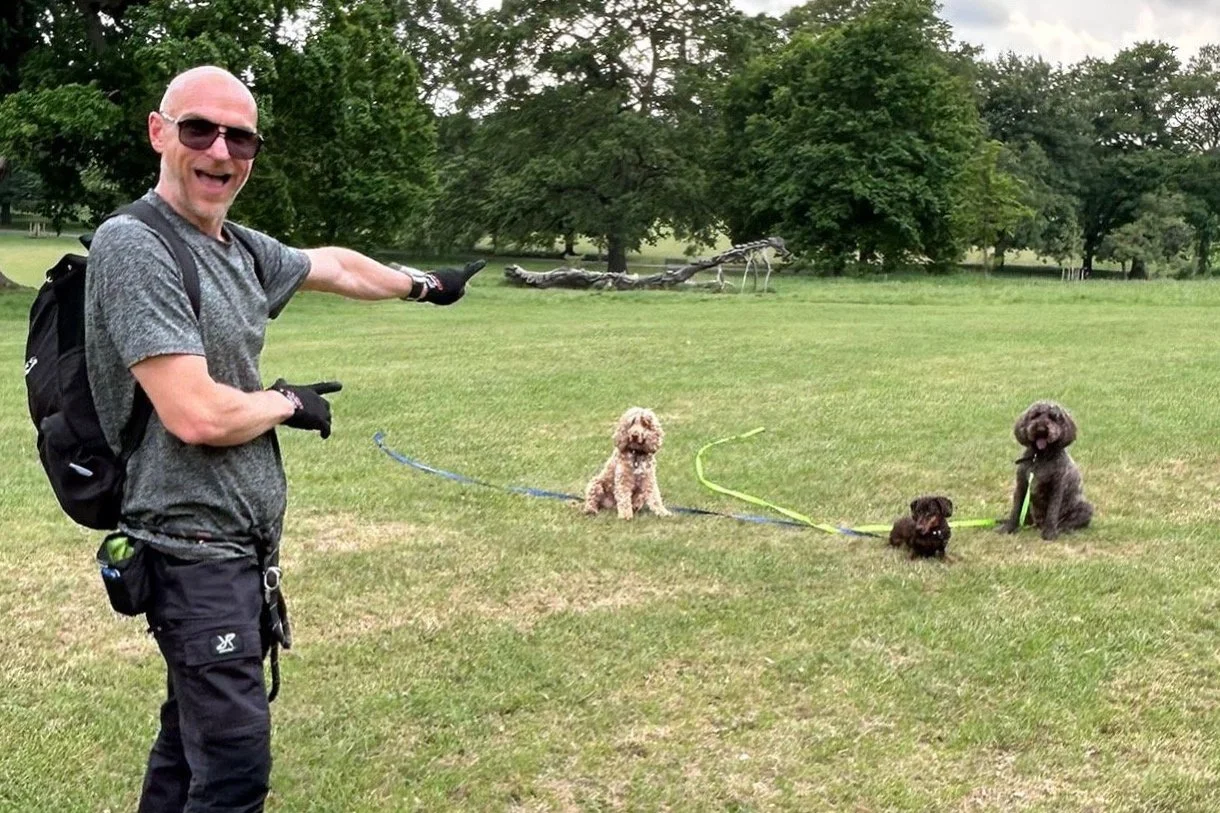The Importance of Loving Leadership
The Secret to Great Dog Training? It's All About Balance!
You know what's fascinating about dog training? It's just as much about understanding us humans as it is about understanding our furry friends! And there's something I've noticed again and again with the wonderful dog owners who come to see me.
Introduction
When I first meet new clients, I have them fill out a little personality questionnaire. What I've discovered is that most of these caring pet parents are naturally agreeable people – which makes total sense, right? They're thoughtful, considerate folk who want the best for their dogs.
But here's the thing (and this might surprise you): our four-legged companions actually don't respond well to overly agreeable humans. In fact, they might just take advantage of all that kindness!
Let me share why being too agreeable can actually work against you when you're trying to build that strong, loving bond with your dog...
Loving Leadership: The Foundation of the Human-Dog Bond
Loving leadership is the practice of being a calm, consistent, and confident guide for your dog through everyday interactions, all while maintaining deep care and affection. It's not about being the "alpha" or asserting dominance, but about becoming the reliable decision-maker your dog naturally looks to for guidance. This approach recognises that dogs are inherently social animals who thrive when they understand their place within a clear, structured relationship.
A loving leader doesn't demand respect through force but earns it through consistent, fair, and predictable behaviour rooted in genuine care. This means making thoughtful decisions about when to engage with your dog, setting clear boundaries, and following through on expectations every single time.
Why Dogs Need Leadership
Dogs are descendants of wolves, but more importantly, they've evolved alongside humans for thousands of years to be cooperative partners. In this partnership, they instinctively seek guidance from a trusted leader. Without clear leadership, dogs often feel compelled to make decisions themselves, which can lead to anxiety, reactivity, and behavioural problems.
When owners fail to provide consistent leadership, dogs may exhibit attention-seeking behaviors, resource guarding, excessive barking, or even aggression. These behaviors often stem not from dominance, but from uncertainty and stress. A dog without clear leadership is essentially trying to manage situations they're not equipped to handle.
The Elements of Loving Leadership
Consistency forms the foundation of loving leadership. Your rules, expectations, and responses must remain the same regardless of your mood, the time of day, or external circumstances. If jumping on the couch isn't allowed, it's never allowed. This consistency helps your dog understand expectations and builds trust.
Emotional regulation is equally important. Dogs are incredibly attuned to human emotions and energy. A loving leader remains calm under pressure, doesn't react emotionally to unwanted behaviours, and provides a stable emotional foundation for a harmonious relationship. When you remain composed during challenging moments, you're teaching your dog that you can handle whatever situation arises and trust is built.
Proactive guidance means anticipating situations and guiding your dog through them rather than simply reacting to problems after they occur. This includes managing their environment, providing clear direction before confusion sets in, and rewarding good choices immediately.
Building the Correct Bond
Loving leadership creates a bond built on mutual respect and trust rather than fear or confusion. When you consistently provide fair, clear guidance, your dog learns to look to you for direction rather than making impulsive decisions. This creates a partnership where your dog chooses to follow your lead because they trust your judgment.
This approach strengthens the human-dog relationship by reducing conflict and building cooperation. Instead of constantly correcting unwanted behaviours, you're proactively shaping positive ones. Your dog becomes more relaxed, confident, and responsive because they understand their role and trust yours.
The Long-Term Benefits
Dogs with strong loving leaders are typically more confident, well-adjusted, and genuinely happy. They experience less stress because they don't carry the burden of making decisions they're not equipped for, while feeling secure in their owner's love and guidance. The relationship becomes one of mutual enjoyment rather than constant management.
Loving leadership isn't about control—it's about partnership rooted in affection and respect. When implemented correctly, it creates the foundation for a lifelong bond built on trust, communication, and mutual respect.


